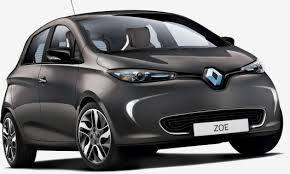decrease in demand
Electric cars will not save the planet without renewable energy
 Several countries, including France, Norway and the UK, are planning to abandon fossil-fuel-powered cars by 2040-50 to reduce air pollution and combat climate change. The idea is to replace cars with internal combustion engines by electric vehicles. However, this is unlikely to help the environment, as electric vehicles are charged with electricity, which is produced from the same “dirty” fossil fuel.
Several countries, including France, Norway and the UK, are planning to abandon fossil-fuel-powered cars by 2040-50 to reduce air pollution and combat climate change. The idea is to replace cars with internal combustion engines by electric vehicles. However, this is unlikely to help the environment, as electric vehicles are charged with electricity, which is produced from the same “dirty” fossil fuel.
By 2040, global electricity consumption by electric vehicles will rise to 1,800 TWh — about five times the current annual electricity consumption in the UK. Using UK data as a benchmark, carbon emissions will amount to an additional 510 megatons coming from the electricity sector worldwide. But this figure can be significantly reduced if electricity is produced exclusively from renewable energy sources and not from fossil fuels. Continue reading
How to make the transition to electric vehicles simple and convenient for consumers
 As the demand for electric vehicles begins to go beyond the usual forecasts, the transition from petrol and diesel vehicles to electric vehicles should become easier and more convenient for consumers.
As the demand for electric vehicles begins to go beyond the usual forecasts, the transition from petrol and diesel vehicles to electric vehicles should become easier and more convenient for consumers.
One of the initial problems associated with electric vehicles is the availability of a sufficient number of charging points. Many people have a question where to find the nearest charging station or point. So far, charging stations, unlike petrol stations, are not so well developed, they are often difficult to see from the road. Chargers are often located in an inconspicuous place, for example, in a quiet, poorly lit corner of a shopping Park. Continue reading




